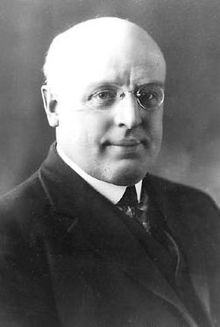
The Social Credit Board was a committee in Alberta, Canada from 1937 until 1948. Composed of Social Credit backbenchers in the Legislative Assembly of Alberta, it was created in the aftermath of the 1937 Social Credit backbenchers' revolt. Its mandate was to oversee the implementation of social credit in Alberta. To this end, it secured the services of L. Dennis Byrne and George Powell, two lieutenants of social credit's British founder, C. H. Douglas.
After requiring all Social Credit Members of the Legislative Assembly (MLAs) to sign loyalty oaths to it, the Social Credit Board proceeded to recommend radical legislation regulating banking, taxing banks, and restricting freedom of the press and access to courts. Most of this legislation was either disallowed by the federal government or ruled ultra vires (beyond the powers of) the province by the Supreme Court of Canada; these defeats and the advent of World War II made the Social Credit Board increasingly irrelevant. In its later years it became highly anti-Semitic, and it was dissolved by the government of Ernest Manning in 1948.